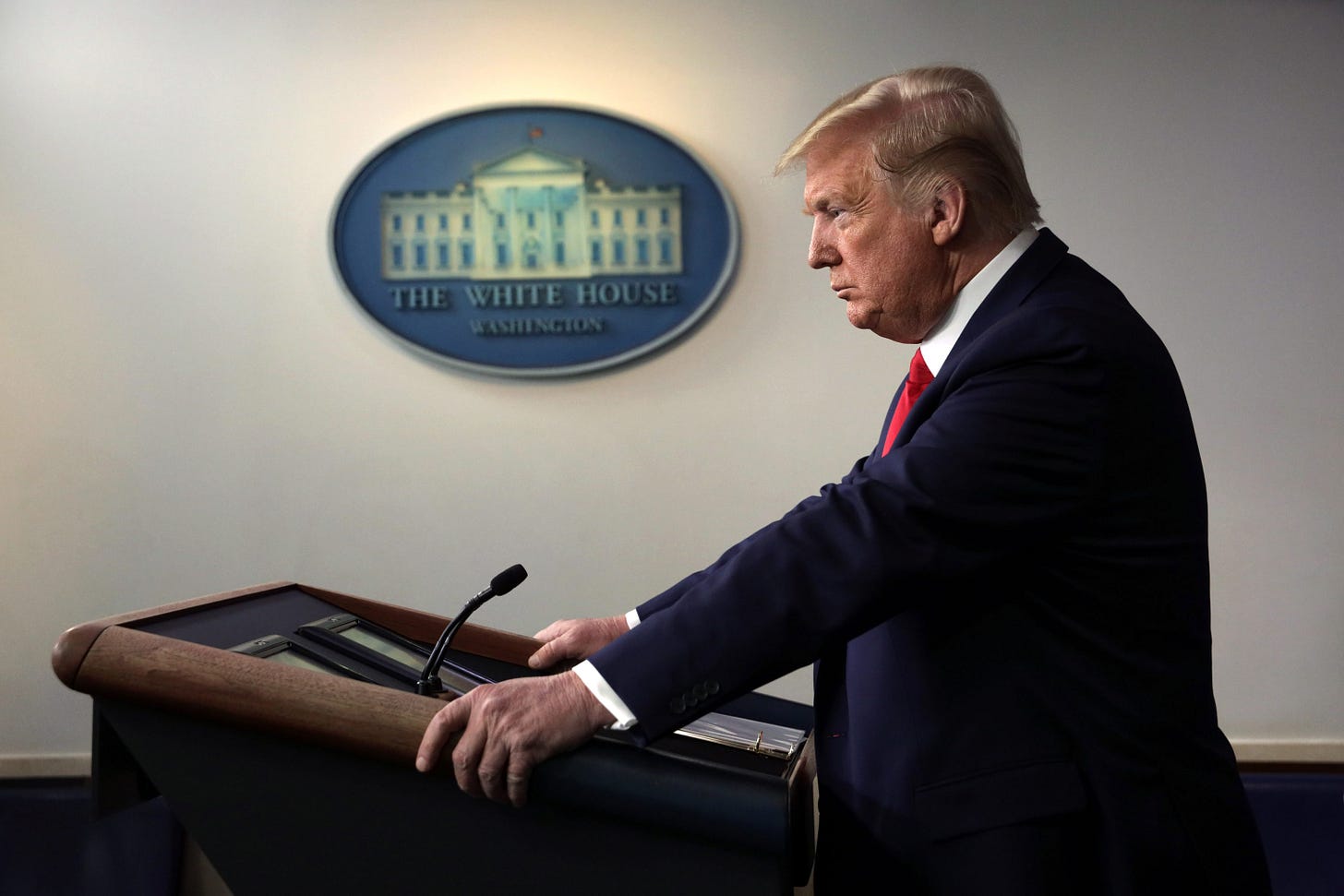

The Trump administration has shown little compunction about overturning traditions surrounding the presidency. In fact, Trump and many of his appointees seem to delight in leaving opponents frustrated and erstwhile allies “concerned” with moves that, while (sometimes) lie within the letter of his presidential power, clearly stand at odds with the practices of his predecessors from both political parties.
Just within the past few weeks, Director of National Intelligence (DNI) Ratcliffe informed Congressional oversight committees that his office, which manages the U.S. intelligence community, would limit its assessments on foreign election interference to written intelligence products. While the Senate Intelligence Committee may yet get these in-person briefings, the episode highlights the administration’s willingness to defy expectations about intelligence practices during the campaign.
This could put at risk a different, longer-standing norm of election-year intelligence. Trump could use the opening provided by Ratcliffe to jettison a tradition that has operated effectively, mostly quietly, and with little controversy for almost seven decades: the incumbent administration offering classified intelligence briefings to major party candidates for the presidency.
Back in 1952, as he was preparing to leave office, President Harry Truman reflected on his sudden succession to the presidency in April 1945—and realized that he hadn’t possessed the requisite intelligence and national security foundation for the major decisions he inherited. As a result, during the election campaign to succeed him, he offered classified briefings on the global situation to both Dwight Eisenhower and Adlai Stevenson. Although Truman clearly preferred Stevenson to succeed him, he believed even more strongly that no future president should be as ignorant as he had been of intelligence matters.
The tradition stuck. Every four years since then, the two major party nominees—and, most of the time, also their vice presidential nominees—have been offered all-source, classified assessments of global hotspots, almost always after the parties’ nominating conventions.
Originally, the Central Intelligence Agency provided the briefings whenever each candidate could reserve time in locations secure enough to discuss classified matters. Since intelligence community reforms in 2004, the Office of the DNI has managed the process.
And it has worked; the vast majority of candidates have gladly taken one or more briefings before Election Day.
These sit-down sessions with intelligence professionals stop short of the top tier of intelligence—the President’s Daily Brief (PDB), which has only been provided to presidents-elect immediately after the election. But even without the PDB, these limited sessions for candidates serve multiple purposes.
First, per Truman’s vision, they give the nominees a robust overview of the national security landscape.
Second, they give these nominees enough information to help them avoid blurting something out on the campaign trail that might damage U.S. interests. As former President Jimmy Carter said, reflecting on his 1976 campaign intelligence briefings, “I wanted particularly not to make any inadvertent mistake that would complicate things for President Ford . . . or later for me.”
Third, these steadfastly neutral, apolitical sessions allow the intelligence community to show to both candidates the objectivity and apolitical ethos that characterize its role in the U.S. national security enterprise, regardless of who wins each election.
Is this remarkable nonpartisan institution, surviving so long in the midst of an inherently partisan process, now at risk?
Four years ago, for the first time since 1952, the suitability of major party nominees for these previously uncontroversial sessions hit election cycle headlines. House Speaker Paul Ryan argued in July 2016 that a classified briefing to Hilary Clinton—who FBI Director James Comey had judged "extremely careless" with her handling of emails as secretary of State—“would send the wrong signal to all those charged with safeguarding our nation's secrets.” On the other side of the aisle, Rep. David N. Cicilline asked President Barack Obama to “suspend Mr. Trump's access to these briefings” because of his calls for Russia to uncover Clinton’s emails. Senate Minority Leader Harry M. Reid even suggested that intelligence officers, if forced to brief Trump, “don’t tell him anything, just fake it.”
DNI James Clapper, following guidance from the White House, ensured that both candidates received the briefings anyway. No classified information appeared to leak as a result. Yes, Trump caused a stir by claiming that he “didn’t learn anything” from the briefers and that he could tell from their “body language” they were “not happy” with President Obama’s reactions to previous intelligence, but that was it. The system held.
DNI Ratcliffe’s recent actions, however, have moved things in an ominous direction during this campaign cycle.
Trump would appear to have little to lose in pulling the plug. No statute requires these presidential candidate briefings; they are merely a courtesy of the national security establishment, in an antiestablishment era. Trump probably would not risk many votes from Republican national security traditionalists, given that so many in that cadre already publicly oppose his re-election. And it would strain credulity to presume that any Trump supporters, after all that they have tolerated from him thus far, would defect because of a cancelled intelligence briefing during the campaign.
Still, taking this action would be shameful. Some things are supposed to be more important than winning an election. One of them is preparing the next president—whoever he is—to be as ready as possible to defend America on day one.
Injecting politics into these heretofore neutral sessions would gut one of the few bipartisan traditions remaining form the early days of the Cold War. Four years ago, Clinton didn’t send unclassified emails dripping in classified content after her sessions, nor did Trump hold rallies after his candidate intelligence briefings to broadcast the nation’s secrets. This tradition, unlike so many others, made it through 2016 alive.
Let’s hope this part of the system continues to hold. Perhaps, in fact, Biden has started receiving these briefings already, without any shenanigans from Trump, and the former vice president has chosen to keep it quiet. If so, kudos to him—and, yes, also to Trump.









